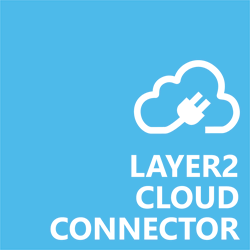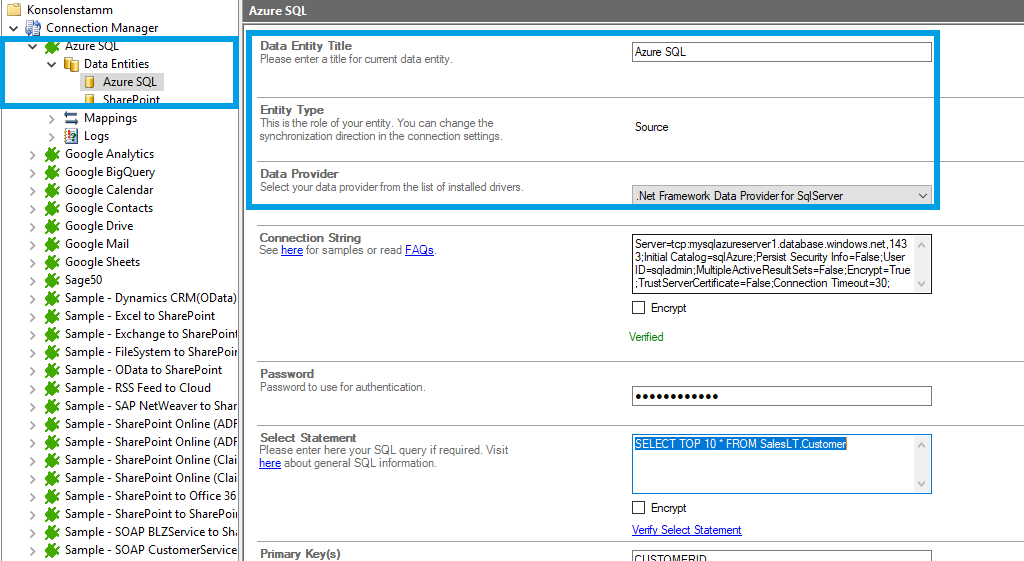We are here to help. Contact us and our consulting will be happy to answer your questions.
Azure Integration and Synchronization
Microsoft SQL Azure database data can be integrated and synchronized codeless with various other data sources, on-premise or in the cloud, using the Layer2 Cloud Connector. Please take a look here for supported systems and applications.
To connect to Microsoft SQL Azure tables or queries the data source entity must be configured as follows in the Layer2 Cloud Connector Connection Manager:
Fig.: Microsoft SQL Azure sample connection in Layer2 Cloud Connector.
Microsoft SQL Azure Specific Configuration Settings
Please select the .Net Framework Data Provider for SqlServer from the list of data providers. It should be installed on any Windows OS. Please install from SQL client tools, if not already installed.
- A valid connection string looks like this: Server=TCP:myServer.database.windows.net; Database=myDatabaseGUID; User Id=MyUserID; Password=myPassword; ...
- Please find more about SQL Azure Connection Strings here.
- Please note specific settings required on the Azure SQL side.
- You can make use of all SQL queries supported by SQL Azure and the data provider. Please note that your query must be updatable in case you want to write to. It must have a primary key for this.
- Please verify the select statement. If there are any issues, please check your access rights first (execute as admin). Start with a very basic query and increase complexity step-by-step. Select as few fields as required to increase performance. Use the data preview to check out the result of your query.
- Primary Key: Please enter column name(s) with unique values, e.g. Col1, Col2.
- In many cases data conversion is done automatically as required by field / column mapping. Note that binaries or blobs are bot managed at this time (e.g. files or images)
- Write-operations are fully supported but need an updatable query (e.g. joins are mostly not), appropriate access rights, also primary key(s) to auto-generate CRUD statements. You can make use of the Layer2 Cloud Connector option to generate GUIDs as primary key client-side for new records during synchronization.
- Note that it is not only about SQL Azure to SQL Server sync. Almost any database is supported, e.g. Oracle, MySQL, IBM DB2, Informix, and more. You can also sync with almost any other system, e.g. Exchange, SharePoint, Dynamics CRM, Office 365, SAP etc.
Step-by-Step Intros For SQL Azure Integration Scenarios
You can integrate and sync with various sources listed here. More information about specific scenarios:
Please contact sales@layer2solutions.com for more.
Ready to go next steps?





